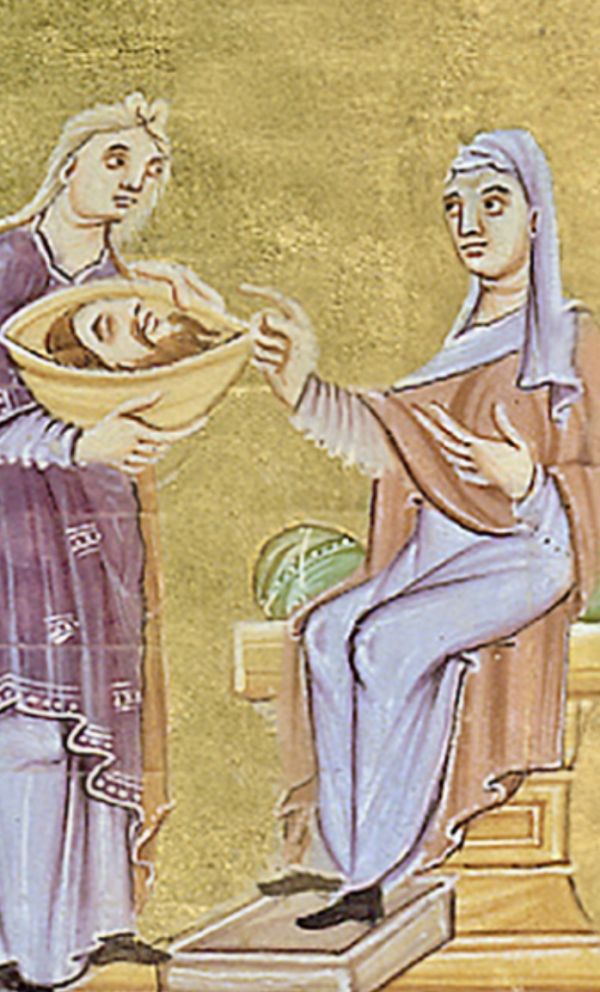Prophecy, Revelation
(Mt 14:1-12)
Those who are cloaked in luster and power become ambitious, bold and willing to any violence for a false point of honor.
The courageous who denounces abuse is cut off, but the voice of his martyrdom will no longer be silent. That’s why the episode doesn’t induce Jesus to greater prudence.
Tyrants mock the isolated, uncomfortable and defenceless, but leaders and powerful are also cowards: they do not intend to alienate popular fame from themselves.
Besides being spineless, here Herod Antipas appears superstitious, even influenced by Hellenistic beliefs about the reappearance of the dead.
In addition, he thought of the men of God as doers of “miracles” - an ambiguous term, which some new translations avoid (cf. v.2).
Jesus never attended the new Herodian capital, Tiberias, the city of court palaces, built in diplomatic homage to the Roman emperor - after Sepphoris, where Jesus also worked.
Generic and confusing religiosity can adapt to every season and be made their own even by those who think that the others’ lives are worth nothing, but a Prophet does not settle on the whim of corrupt systems.
In the Palestinian villages the life of the people was harassed by taxes and abuses of landowners [who did not even reside on the spot] and controlled by the perfect combination of interests between civil and religious power.
The leaders of the popular faith, orthodox, subordinate and “befitting”, were at leash of the authorities on the territory. They considered themselves definitive, and found strength in the coalition.
It seemed absurd that in that society someone dared to break through the omertous wall that guaranteed the troublemakers - the guides, the bullies even of the lowest level - to consider themselves untouchable.
Faced with the blackmail (without too many compliments) of the privileged who had control of every social and cultural class, it seemed impossible to start a new path, or say and do anything not aligned.
The question of "Jesus, Who is he?" grows throughout the Gospels.
The statement of people's opinions (e.g. Mt 14:1-2; Mk 6:14-16; Lk 9:7-9) suggests that even around the first assemblies of believers there was an attempt to understand Christ from what was already known [from the criteria of Scripture and tradition, from ancient - even superstitious - beliefs and suggestions].
But the man of God is not simply a purifier of the Temple, nor a patchworker of conformist religiosity. He overturns popular, emotional or standard hopes.
In this way, each Prophet troubles all the “rank and file” characters, who hold the exclusiveness.
John and Jesus challenge and attract upon themselves the revenge of those who try to perpetuate the prerogatives of the old cosmos, and the wrath of those who are exposed in their hypocrisies.
It’s the real difficulty that the Proclamation of the New Kingdom in the world encounters.
His contemptuous refusal and each assassination attempt will be a litmus test of our singular and renewed testimony, the revelation of which will run parallel to the Two.
[Saturday 17th wk. in O.T. August 3, 2024]












